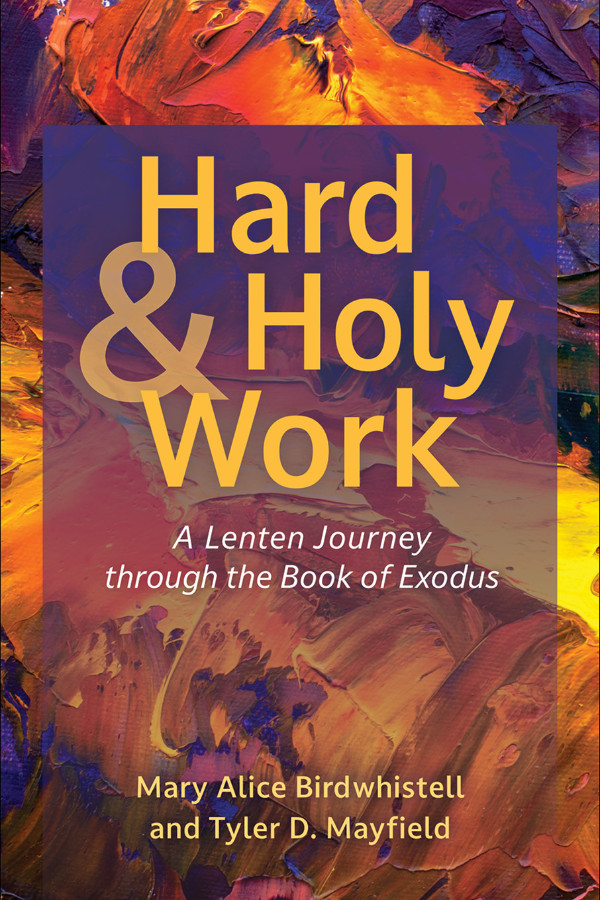Five years ago, I gave up shopping for Lent. I was extremely proud of this decision, feeling that such a surrender matched the spirit of Lenten humility and sacrifice. I avoided shopping for things that I deemed inessential and frivolous.
I am embarrassed to say that it was difficult, and equally humiliated to confess that I was very proud when I made it through 40 days without purchasing one inessential item. Did I give the money to the poor at the end of this spiritual exercise? I suspect you know the answer. Of course not. Instead, I rewarded my consumerist abstinence with a shopping spree that I felt I had most certainly earned, a resurrection of my contribution to U.S. consumer culture.
As a Hispanic Catholic, I have always felt that Lent was my season. Ours is a spirituality that highlights the suffering of Jesus, where Ash Wednesday and Good Friday are our High Holy Days. We are aware of the resurrection yet prefer to dwell on the suffering of the cross.
Yet I am also an American, and like many Americans, I find that the Lenten spirit is difficult to embody. This is not a country that celebrates the introspection and humility Lent demands of us. In fact, our economy depends on the exact opposite: a culture in which goods and people are disposable, where sound bites rival critical thinking, where religious practice is reduced to individual spirituality.
Several years ago, I began a project that interested me both as a scholar and as a shopper. I wrote a book called “Shopping: Christian Explorations of Daily Living,” which explores shopping as a political, ethical and religious act.
I was not interested in writing a Christian’s guide to ethical shopping but rather in understanding shopping as a Christian act. Shopping is part of everyday life, whether that means buying a book on the Internet, going to the mall in the suburbs or buying vegetables at a local market in the highlands of Guatemala. Shopping is part of our everyday survival; it is an act that unites humanity.
Yet as a theologian, I struggle with how this culture of shopping conflicts with the faith and teachings of Christianity. The Christian message is one that values people over objects, relationships over material goods, and is in direct conflict with consumerism.
We must recognize that through the act of shopping, whether it is for an article of clothing, a toy, a pint of strawberries or even our morning cup of coffee, we participate in a global economy that values profit over people. Disposable goods are made by disposable people.
Is shopping sinful, then? I do not go to the extreme of a world-denying rejection of shopping, but I do challenge the reader (and myself) to question our assumed culture of consumerism.
I came to find the clearest answer to my quest for a Christian understanding of consumerism in the poetically written spiritual autobiography of Augustine of Hippo, “The Confessions.” In it, he writes about his struggles with misguided desire in his long and arduous path to Christianity.
As I struggled to find a theological category to come to terms with our culture of shopping, the word “concupiscence” leaped out at me.
Augustine often describes misguided desire, or lust and passion, as concupiscence: strong desire, especially sexual, that sometimes implies sin or evil. Concupiscence refers to compulsive and pleasureless enjoyment. Augustine sees all desire as dangerous and evil, for passion leads to a loss of control. When Augustine speaks of the thrill of stealing or of sexual lust, he could be discussing shopping. Indeed, some consider compulsive shopping a form of addiction.
Misguided desires impede our relationship with the sacred. For Jesus, detachment from the material is necessary for attachment to him. In other words, we cannot serve God and money. If money becomes how we define our lives, if our material goods become the indicator of how we value the worth of others, then there is no way we can be leading a Christian life.
Within the Christian framework, to live a life governed by materialism is to live a life we were not created to lead. Christianity teaches us that we will always be left wanting, always be unsatisfied, if we allow anything but our relationship with the sacred to govern our lives. Only when we focus our desire on that which we are created to desire -- God -- will we find true satisfaction and contentment in life.
For Augustine, the answer to the destructive cycle of concupiscence is equilibrium. Material objects are in no way evil and tempting in and of themselves. It is not the object that is the problem; it is the misdirected desire for the object.
This was brought home to me when I spent Holy Week in a Mayan town in Guatemala called San Lucas Tolimán. On Good Friday, we wandered around the small town as poor families prepared colorful alfombras on the streets that would later be filled with the Good Friday procession of Jesus’ corpse.
Alfombras are colorful carpets made of sawdust and other materials such as pine needles and flowers; they exist in their final form only momentarily, though they take hours to create. After the procession, they become colorful collages that stay on the streets until the rain washes them away.
The practice of creating these alfombras is in sharp contrast to the flighty and unsatisfying act of consuming. Their beauty is intended not for us but for Jesus’ lifeless body. Families create these carpets as a form of penance, as a form of sacrifice (the materials can be expensive) in honor of Jesus’ sacrifice. They spend the entire day preparing for Jesus.
The Lenten seasons I have spent in Guatemala are the only times in my life I feel I have truly experienced Lent in a communal, public manner. It is not only the form of the celebration but also the content.
There, Lent is a public ritual marked by a community of faith on a collective journey that begins on Ash Wednesday and has weekly public reminders, usually in the form of religious processions, to keep worshippers on the Lenten track. These rituals focus on Lenten suffering and sacrifice, immersed within a community where suffering marks daily life.
Last year, in contrast, I spent Good Friday teaching. For a professor at a secular university, Good Friday is just a Friday. The world does not pause even for a moment of silence.
So did I give up shopping again this year for Lent? I have again tried to step out of the cycle of consumer-driven, workaholic culture. But this year I went a more creative route and decided to give up my time. I have tried to limit my time in front of the television, surfing the Web, and immersed in work when my kids start begging me to play a game with them or read a book.
These moments feel like a quiet revolution. And for the first time, Lent is starting to feel like part of my everyday life. Does my sacrifice mirror that of my sisters and brothers in the global South? Far from it. But it is a step in the right direction.







